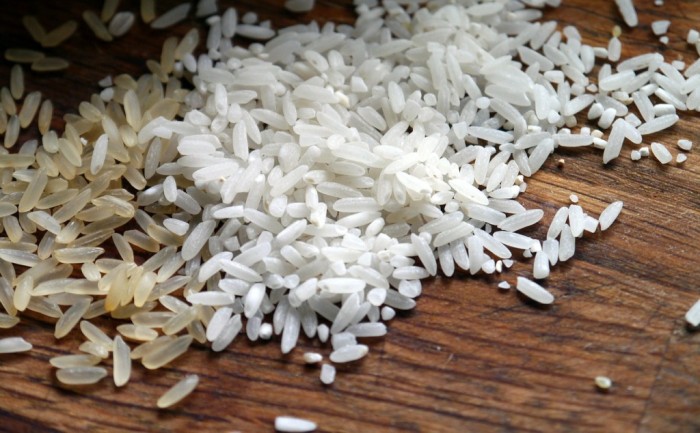The other day, I set out with my “Skelewu” dance steps when rice farmers and millers gave the assurances that, due to expected bumper harvest, and their desire to assist in the reduction of prices of goods, a 50kg of rice would crash to N6,000 in a few months.
My happiness was twofold. One, that rice, whose price hit the rooftop at N25,000 before bottoming out between N13,000 and N15,000 lately, would soon be within reach of the average Nigerian. And two, that the Federal Government preachment, and its commitment to increasing food production, was yielding unexpected quick dividend.
In my ecstasy, I took a journey back into time, to the Second Republic, from 1979 to 1983, when the civilian administration of President Shehu Shagari, elected on the platform of the National Party of Nigeria (NPN), promised Nigerians a “Green Revolution” in agricultural production.
A major plank of the pledged turn-around was to increase the production of rice in order to reduce the country’s dependence on importation of the product that’s a staple of most homes in the country. To this end, the government acquired hectares of land all over the federation, and bulldozed and prepared them for cultivation only to virtually abandon the agricultural revolution ab initio.
For all practical purposes, the government did the bush-clearing for three consecutive years, but seeded only an insignificant portion of the vast, arable land. So, each year, the cleared, vacant plots would return to grasslands and then bushes.
Instead of the expected bountiful local production, the government, under the supervision of the powerful Minister of Transportation, the late Alhaji Umaru Dikko (1936-2014), resorted to massive importation of products, culminating in the infamous “Rice Armanda,” “Sugar Armanda,” and “Fertilizer Armanda,” to name a few.
Meaning that the “revolution” was very “green” in one particular sector: the pockets of politicians of the ruling NPN, whose slogan of “One Nation, One Destiny” was perhaps only in their striving to corner the people’s patrimony.
Now, leapfrog to 2017, and we are witnessing, without a code name, an actual “revolution” in agriculture. With a presidential initiative backed by appropriate policies, funding, implements, incentives and encouragement, agriculture has suddenly left the backstage to assume the second position to oil in the economy.
As acknowledged by President Muhammadu Buhari in his October 1 Independence Day broadcast, the Governors of Lagos, Kebbi, Ebonyi and Jigawa are leading in “rice and fertilizer revolutions,” while the Governors of Ondo, Edo, Delta, Imo, Cross River, Benue, Ogun, Kaduna and Plateau States are contributing their quotas in palm oil, rubber, cashew, cassava, potatoes and other crops.
Increased rice production has prompted the government to reduce importation that had affected local efforts in the past. An October 9 report by the New Telegraph indicated that, “Nigeria has cut rice importation by 2.77 million metric tons valued at N420 billion ($1.17 billion) since the beginning of the year (2017),” as local production reached 56.6 per cent of the total domestic consumption of 4.9 million tons valued at N742.6 billion ($2.06 billion), adding that, “this has affected Thailand’s rice adversely, as unsold stocks are piling up daily.”
Consequently, Thailand, which has been feeding fat on Nigerians’ craving for foreign rice, is lamenting the cutback on imports, and the resultant unsold stocks. According to the president of Thailand Rice Exporters Association (TREA), Mr. Chookiat Ophaswongse, “If the situation continues like this, you will see a lot of exporters going out of business.”
Imagine Thailand, which, for decades, flooded Nigeria with years-old chemically-stored rice! Whom did our local rice farmers and millers cry to when, according to the Central Bank of Nigeria (CBN) report in 2016, the amount Nigeria spent between January 2012 and May 2015 on rice importation “resulted in huge unsold stock of paddy rice cultivated by Nigerian farmers and low operating capacities of many integrated rice mills?”
Ironically, the United States of America, whose President’s mantra is “AMERICA FIRST,” is bandying figures to counter those of Nigeria’s Minister of Agriculture, who, without sloganeering, also wants “NIGERIA FIRST” to guarantee for Nigerians employment, income and self-sufficiency in rice production.
Well, rather than quarrel over figures, I’m euphoric that we, as a people, are about to discard the unenviable record of the world’s highest rice importer, and a dumping ground for Thailand, the United States and Vietnam. If you ask me, these rice exporters should fret “bigly” (big league), “as Nigeria cuts imports by 2m tons.”
Really, in these recession-induced times, who cares much about “accurate figures” so long as Nigeria has begun to produce enough rice for local consumption and channel prior billions spent on rice imports to needy products we have no comparative advantages in.
I dare say that government’s initiative is a role reversal of some sorts. We have long borne the brunt of massive importation of rice. Now that we can maximize production of the commodity, let the other side feel the pinch of the shoe!
* Mr. Ezomon, Journalist and Media Consultant, writes from Lagos, Nigeria.



